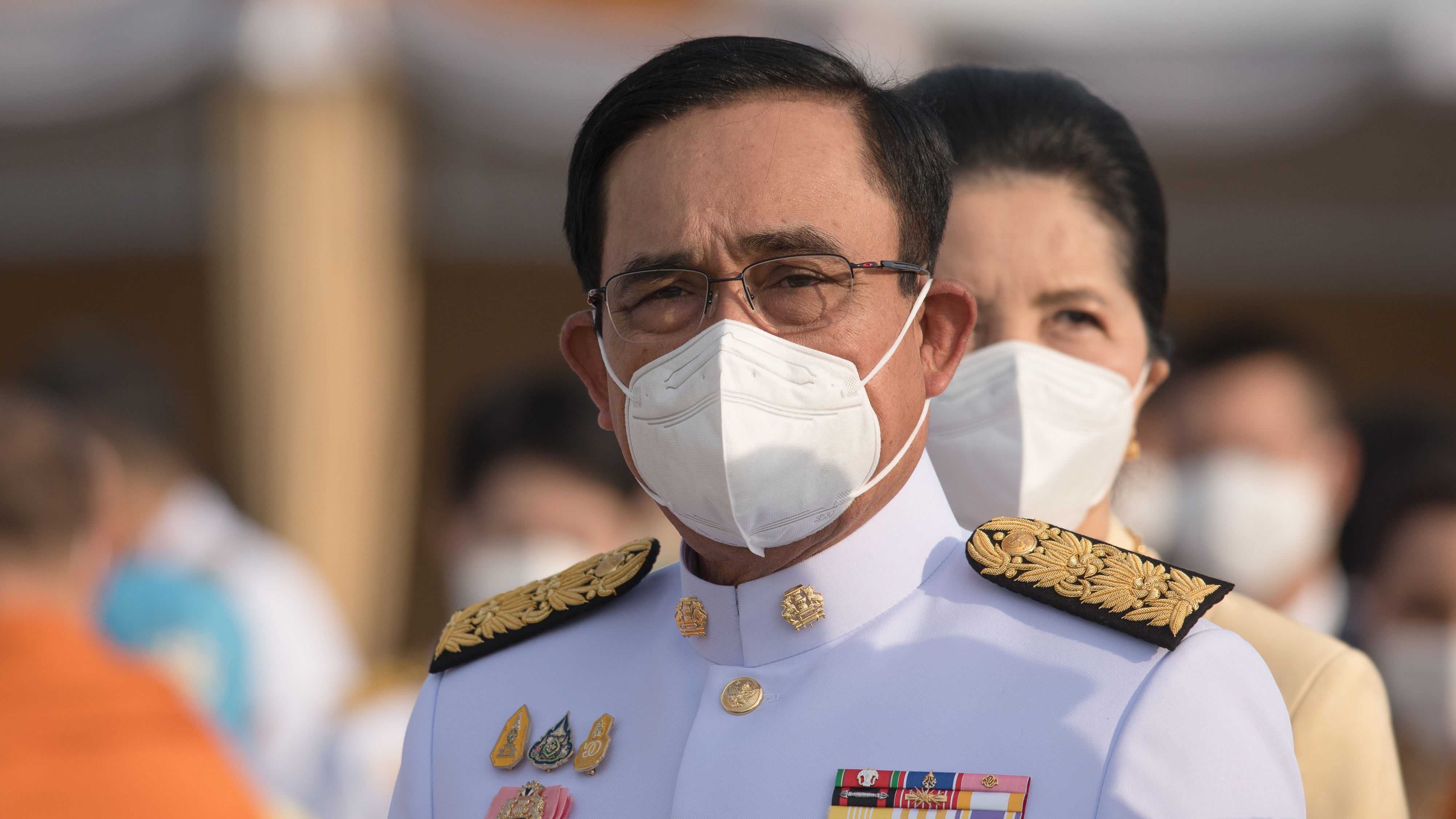Saudi Arabia and Thailand settle 30-year dispute over $20m jewel theft
Two countries to appoint ambassadors for the first time since 1989

A free daily email with the biggest news stories of the day – and the best features from TheWeek.com
You are now subscribed
Your newsletter sign-up was successful
Saudi Arabia and Thailand have resumed diplomatic relations three decades after a row between the countries after the theft of jewels from a palace in the Gulf state.
In a joint statement issued during a visit by Thailand’s Prime Minister Prayut Chan-ocha to Riyadh, the countries announced “the full re-establishment of diplomatic relations”, describing the move as a “historic step”.
The reintroduction of ties is “the result of long-standing efforts at different levels to re-establish mutual confidence and friendly relations”, the joint statement said following a meeting between the Thai premier and Saudi Crown Prince Mohammed bin Salman.
The Week
Escape your echo chamber. Get the facts behind the news, plus analysis from multiple perspectives.

Sign up for The Week's Free Newsletters
From our morning news briefing to a weekly Good News Newsletter, get the best of The Week delivered directly to your inbox.
From our morning news briefing to a weekly Good News Newsletter, get the best of The Week delivered directly to your inbox.
Jewel heist
The two countries cut diplomatic ties after “Thailand-born janitor Kriangkrai Techamong stole $20m worth of precious gems from the home of a Saudi prince” in 1989, Al Jazeera reported. The theft triggered “a spate of murders in Bangkok and a feud between the countries dubbed the Blue Diamond Affair”.
At the time, Kriangkrai “had no idea he was setting off a diplomatic storm that would last three decades”, The Times said. But the search for the jewels quickly “turned into an international whodunnit involving murders, police chiefs, ministers’ wives”.
The former janitor, who worked in a home belonging to the eldest son of Saudi Arabia’s then King Fahd, “had gambling debts when he saw his opportunity”. “Left alone in the palace, and knowing that safes were regularly left unlocked, he emptied them,” the paper added.
“He bound some of the gems to his body, under his clothes, and hid others in vacuum-cleaner bags, before smuggling them back to Thailand.” There, he found a dealer who was willing to “fence” them for a “fraction of their value”.
A free daily email with the biggest news stories of the day – and the best features from TheWeek.com
Saudi authorities alerted Thai officials to the theft and Kriangkrai was arrested and sentenced to five years, with a reduction for a guilty plea.
However, the dealer behind the sale of the gems was never arrested, prompting accusations that Thai police “bungled their investigation into the jewel theft, with allegations that the stolen gems were snapped up by senior officers”, Al Jazeera said.
“Thai police later returned some of the jewels but Saudi officials claimed most were fakes.” To this day, “the whereabouts of the most precious gem – a rare 50-carat blue diamond – remains unknown”.
All the while, Thai media has “crackled with reports that the wives of top officials had been spotted wearing diamond necklaces that bore an uncanny resemblance to the stolen jewels”, the broadcaster added.
In a sinister twist, “three Saudi diplomats in Thailand were killed in three separate assassinations in a single night” a year after the theft, Reuters reported, further souring relations between the two states.
The theft “remains one of Thailand’s biggest unsolved mysteries and was followed by a bloody trail of destruction that saw some of Thailand’s top police generals implicated”.
In 2014, a Thai court dismissed a case against five men, including a police officer, who had been charged with murdering a Saudi businessman “who disappeared one month after witnessing one of the shootings of the Saudi diplomats”, the news agency added.
The wife and son of the “fence” that facilitated the sale were also later found dead in their Mercedes, exposing an extortion plot by senior police officers.
Kriangkrai later became ordained as a monk, stating in multiple interviews that he “wanted to be ordained for life to erase the curse of the Saudi diamond” and asking for “everyone’s forgiveness for what I’ve done”.
Bygones be bygones
For Thailand, “the loss to the Thai economy of the row far outweighed the value of the gems”, The Times reported.
The country had previously provided “a large number of the domestic workforce” in Saudi Arabia, “but most were sent home” during the fallout of the theft, depriving their families and the broader Thai economy of billions of dollars”.
The various Thai governments and military juntas that have ruled the country since 1989 have “been eager to normalise ties with oil-rich Saudi Arabia”, as the spat “has cost billions of dollars in two-way trade and tourism revenues”, Reuters said.
In the statement accompanying the announcement, Thai PM Prayut expressed “sincere regret over the tragic events in Thailand between 1989 and 1990”, adding he would “raise cases to the competent authorities in the event of new, relevant evidence”.
Both countries said they will appoint ambassadors “in the near future”, while Saudia, the Saudi national airline, announced on Twitter that it will restart direct flights to Thailand in May.